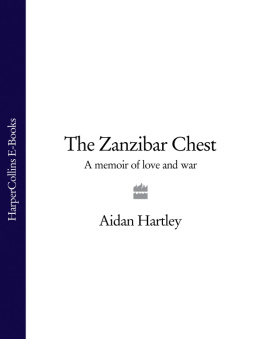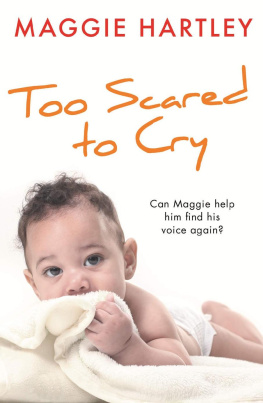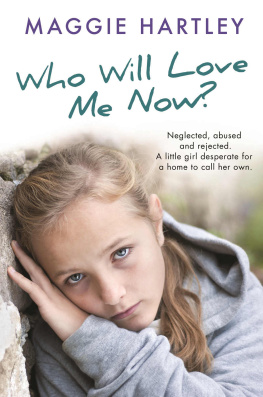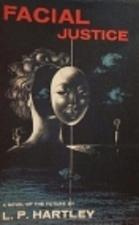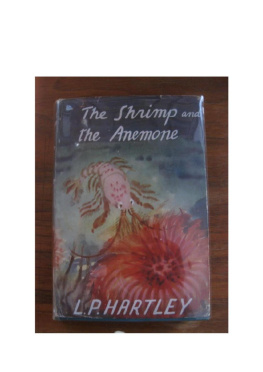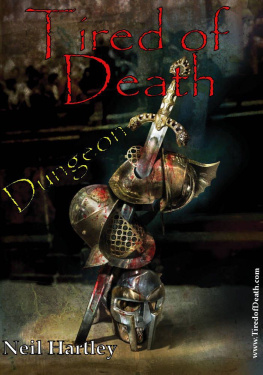From time to time, God causes men to be born and thou art one of them who have a lust to go abroad at the risk of their lives and discover news today it may be of far-off things, tomorrow of some hidden mountain, and the next day of some near-by men who have done a foolishness against the State. These souls are very few; and of these few, not more than ten are of the best.
Beyond the Rivers
of Ethiopia
M Y FATHER WAS THE closest thing I knew to the immortal. Our Father, who art in Africa, I prayed as a child of six. Hed always been there. When he died I couldnt believe it. I had moments when I felt haunted by him in ways that were almost physical. They were a comfort to me. At home on the Indian Ocean coast, I swam off the beach and felt he was in the water all around me. On the upcountry plains, I imagined his bones were billowing up in the dust behind the nomads herds of cattle. I clung on but I felt him slipping away. In my stricken state I longed to pluck something back from oblivion.
The day came for us to go through Dads belongings. His private territory at home was a coconut-thatched veranda overlooking the beach. He kept his writing desk there and a single bed made of mountain cedar, lashed with thongs of rawhide from an oryx shot many years before. Some of his clothes were still hanging up in there, which described a life of sadhu-like simplicity: a few khaki bush shirts and shorts, the kikoi wraps we wear in Kenya like sarongs, as well as several pairs of camel-skin sandals.
In the corner of the veranda was a Zanzibar chest, carved with a skill modern Swahili carpenters have forgotten. The old camphor box bore a design of lotus, paisley and pineapple and it was studded with rivets tarnished green in the salty air. When I opened the chest lid, cobwebs tore and something scuttled into a corner. In the chest was the skin of a lion Dad had tracked down after it had killed one of his best bulls, a hunting horn, a flute of apricot wood and a stack of files. These last contained reports on missions to southern Sudan, livestock projects for the tribes of Karamoja, botanical studies and copious notes about camels. Always restless himself as a younger man, Dad had spent his last years devising schemes to help Africas nomads remain on the move, beyond the reach of those who wanted to settle them.
Inside one file were my fathers handwritten memoirs on which he had been working for years. I opened a second file and reached down to grasp the pages. The instant I touched them they began to crumble in my hands. Time, heat and the drenching humidity had ravaged them. Mildew dusted the covers, giving off that scent of the forgotten. The translucent geckos that roam our walls had laid their soft, ivory eggs along the spines of the notebooks. White ants and silverfish had eaten into the papers, leaving a web of brown capillaries. Their tracks threaded through written words and underlined paragraphs and burrowed into months and years of recollection. I began to read the papers. I quickly realized I had stumbled on a secret that had been buried for half a century. Here were the diaries of the man named Peter Davey, my fathers good friend. Ever since I was a boy, the story of Davey had crept in and out of conversation at home in vague, half-finished sentences. The tale had always been there, yet my father never properly talked about it. Davey was a silence, a shadow that moved constantly out of the corner of ones eye. And now, as if it had been deliberately dropped into my lap, here was the full and tragic rendition of Daveys life.
What I found in the Zanzibar chest was a story of lives so utterly different from my own, so exotic, set in another part of the world and in another time. I had never believed in any great cause, I was sent to fight no wars. What I admired most about my father, Davey and those like them is that they were men of action, whereas I was ever the observer, not the participant, which is the main reason Im able to be here to tell this story.
On my flight back to Rwanda I recognised the man who had guided me during the genocide. To be certain of it I looked at his right hand and, sure enough, he had no thumb. It had been shot off in the days when he used to wear a red beret and ragged fatigues. Now he appeared in a sharp grey suit carrying a briefcase. As he walked down the aisle past me, our eyes met and his face brightened.
Frank.
We sat together. Frank, I was reminded from years ago, could talk non-stop. He was one of those men who has suffered immensely, but enjoys the fact that he has lived to tell you all about it. As we flew back to Rwanda, he spoke of battles, massacres and dreams. He recalled the time we marched together on a journey that would haunt us forever. Listening to him speak, I was transported back to those terrible days and felt dizzy to see that here we were, suspended in ether above Africa and toasting each other with little bottles of whisky served up by air stewardesses.
I descended from the aircraft and felt against my face a blast of hot air carrying familiar smells. I found the faint marks of a mortar bomb impact on the runway tarmac as I walked to the terminal. Inside, the soap statue of the gorilla was back in his glass case. The roads edged by brick red earth and low huts the same. The Guinness is Good for You advertisements the same. Guava trees the same. Faces the same. The same, when the truth is that it was changed. Only in our minds, myself, Frank and all the other survivors, did we see a ghost town superimposed on the real city of today. But there were no piles of severed hands by the roadside. No monkey in a bow tie and tuxedo perched in a tree.
I checked into the same room at the Meridien hotel where we had slept under our flak jackets. I tried to remember. But it was as if nothing had happened. The hotel was back to being what it had been before the fighting. A hotel.
The pool terrace was the place to be these days. This is where the Patriotic Army top dogs and intelligence chiefs drank beer all afternoon. I sat, maintaining a smile, nursing a cold beer, looking over towards the swimming pool. I remembered that the pool had been empty in the war. The UN troops had used it as their water supply when the taps ran dry and they drank every drop. Today, as I watched from the terrace, the Tutsi children of the Patriotic Army leaders, their plump black bodies glistening with wet, were leaping about in a game of water volleyball. For years I had lived in my own museum of horrors in which the Meridien swimming pool had remained empty. Meanwhile in the real world the kids were playing in the chlorinated water as white-gloved waiters carried trays of ice-cold beers to the war veterans and their wives.
From Kigali I drove to Goma, where Lazarus is buried in a mass grave somewhere. I was on the back of a motorbike taxi when two policemen in banana yellow helmets stopped us and shook down the driver for a bribe. Further up the road that morning Hutu militias had ambushed a truck and killed three traders. The sun was beating down. The volcano on the horizon was smoking, ready to erupt any moment. I stood there watching a passing Congolese girl with hair braided into six-inch spikes and crowds of hustlers striding along in garish pyjama suits. Bicycle taxis with tinsel wound into the spokes. Guerrillas in mirror shades with radios clamped to their ears. And my cell phone rang. I answered and it was my wife Claire, calling from home. I love you, I said and she replied, I love you. She told me that at that very moment, when I picked up and she heard my voice on the phone, our baby daughter kicked inside her womb.

